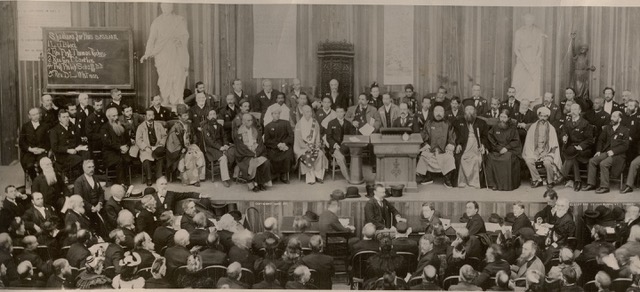When asked the reasons of our fervour against antisemitism, we might be tempted to scoff at the questions and the suspicions that an obviously Muslim organisation fighting so vociferously against antisemitism might engender, yet we resist the temptation to dismiss such concerns out of hand. Not only because we understand there are so many other issues our brothers and sisters from all faiths might want us to consider, like islamophobia, Israel and Palestine, on one side of the spectrum, and gender equality, and homophobia on the other, but because we firmly believe in the power for change our approach will bring to all issues. Let me elaborate.
We are keenly aware of all the problems our society and communities face, and in an ideal world, every humanitarian organisation should deal with all issues at all times, and perhaps our exclusive focus on such a divisive topic might be a justifiable reason to view our endeavour with surprise or even mistrust.
It is, however, not just a case of arbitrarily picking a controversial issue for the sake of it, but rather of believing that creating a momentum within the Muslim community towards the fight against antisemitism, is a way towards a solution to all the most pernicious and problematic issues all our communities face, and specifically a catalyst in the fight against islamophobia.
This is more logical than the counterintuitive nature of the statement might suggest: bias, the cause of prejudice, is rooted in natural, and seemingly benign assumptions we all quite innocently and automatically make in our attempt to make sense of the world. The cognitive processes we employ in our day-to-day decisions, favour an all-encompassing approach to reality and human interaction, without which the level of information needed to deal with reality in a totally unbiased way would be too great.
Consider the famous joke in Mark Haddon’s award-winning book: The Curious Incident of the Dog in the Night-Time:
“There are three men on a train. One of them is an economist and one of them is a logician and one of them is a mathematician.
And they have just crossed the border into Scotland (I don’t know why they are going to Scotland) and they see a brown cow standing in a field from the window of the train (and the cow is standing parallel to the train).
And the economist says, ‘Look, the cows in Scotland are brown.’ And the logician says, ‘No. There are cows in Scotland of which at least one is brown.’ And the mathematician says, ‘No. There is at least one cow in Scotland, of which one side appears to be brown.'”
In Haddon’s book the joke is told by the protagonist to extol the superiority of maths over all the sciences, but it is a good example of how our brain works, and how complex reality requires a lot of data processing.
The case of the cow in the field in Scotland is a simple example of a rather simple reality, the problem is that we tend to make observation about very complex realities in the very same simplistic way. This is not because we are foolish or careless, but because, as already seen above, we cannot be wasting time every time we glance outside the window of a moving train to consider all possibilities.
The consequences of these cognitive shortcuts are insignificant when it is a cow in a field quickly disappearing from view, but become problematic when we apply this quick decision making to the complex realities of human behaviour and belief. As The Guardian’s science correspondent Hannah Devlin puts it in her article Unconscious bias: what is it and can it be eliminated?
“Scientists believe that stereotypes in general serve a purpose because clustering people into groups with expected traits help us navigate the world without being overwhelmed by information. The downside is that the potential for prejudice is hard-wired into human cognition.”
And this is why the colour of the cow is ultimately so important: by rejecting our normal cognitive processes when dealing with complex realities, we are less prone to fall prey to prejudice, and it is also why by challenging our most difficult issues, like antisemitism in Muslim communities, we are better placed to engage with an open mind with other issues that affect us all.
Furthermore, by visibly engaging with worthy campaigns, whose influence will benefit people we do not normally affiliate with, we win more support for causes which more directly affect us.
Put simply, when we hear a Priest lending support to LGBT+ tolerance, an imam eloquently exposing antisemitism, or a rabbi vociferously opposing islamophobia, we are not only more likely to sit up and listen, but we might also give a better chance to ideas and concepts we might have not been entirely open to up to then.
Lou Fioravanti is a Senior Researcher with Muslims Against Antisemitism.

